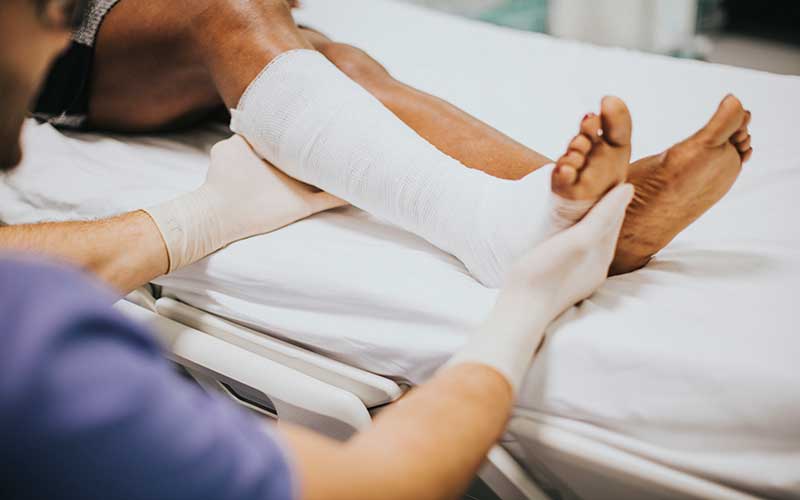As orthopaedic surgery can be a major life event, it is important to be prepared for the process and understand what to expect before, during, and after the experience. This blog post aims to provide help and advice for those who are preparing for orthopaedic surgery, so that they can get the most out of their experience. From pre-surgery planning to post-surgery recovery, this guide summarizes the key steps to take to ensure that you have a successful surgery.

Here, we will discuss how to choose the right surgeon, how to create a recovery plan, what to expect during recovery, and how to manage pain after the surgery. Dr Navi Bali will provide tips on how to communicate effectively with your medical care team, how to manage expectations, and how to stay motivated throughout the process. By the end of the blog, you will have a clear understanding of how to prepare for your orthopaedic surgery and enjoy a smooth, successful experience.
1. Build a support system
One of the most important things you can do to get the most out of your orthopaedic surgery experience is to build a support system. Having a community of family and friends who understand what you’re going through and can offer emotional and practical support can make a huge difference during the recovery process. Reach out to your loved ones and let them know how they can help you. It can be as simple as having someone to talk to or offering to help with meals or errands. Find people who will listen and be understanding.
2. Make lifestyle changes before surgery
Before your orthopaedic surgery, it’s important to be proactive in making changes to your lifestyle that can help to not only make the surgery a success but also make the recovery period easier. A few lifestyle changes that can be beneficial include quitting smoking, exercising regularly, and becoming more mindful of your diet. Additionally, it’s important to establish a good relationship with your orthopaedic surgeon and be open and honest with them about any concerns you may have and any other medical conditions that could affect your surgery. Making these changes prior to your surgery can help to ensure the best possible outcome.
3. Follow post-operative instructions
After you’ve had your orthopaedic surgery, following your post-operative instructions is essential for a successful recovery. These instructions will be tailored to your specific procedure and may include things like taking medications, avoiding certain activities, and wearing braces or splints. Depending on the type of surgery you have, you may also need to attend post-operative physical therapy and return to the doctor for follow-up visits. Following your post-operative instructions is critical for the success of your surgery and the best possible outcome, so make sure you understand and adhere to them.
4. Manage pain properly
Pain management is one of the most important aspects of any orthopaedic surgery experience. After surgery, you may experience pain, inflammation, and stiffness. It is important to manage this pain properly in order to ensure a successful recovery and to get the most out of your experience. Medications, physical therapy, and other modalities can all be used to manage pain. Additionally, it is important to rest and avoid activities that are too strenuous or painful. Taking care of yourself and managing your pain properly will ensure a successful recovery and a positive experience.
5. Participate in physical therapy and rehabilitation
Participating in physical therapy and rehabilitation is an important part of the post-surgery recovery process. It is important that you follow your doctor’s orders regarding physical therapy and rehabilitation, as this will help you to maximize the benefits of your surgery. During physical therapy and rehabilitation, you will be taught how to use assistive devices, such as crutches and wheelchairs, as well as how to perform certain exercises and stretches that can help you to regain strength and mobility. In addition, participating in physical therapy and rehabilitation can help you to better understand your post-surgery diagnosis, as well as how to prevent future injuries and complications related to your surgery.
In conclusion, the most important thing you can do to ensure a successful orthopaedic surgery experience is to plan ahead. Talk to your doctor, ask questions, and get a clear understanding of the procedure, what you need to do to prepare, and what to expect during recovery. With the right preparation, you can get the most out of your surgery experience and get back to your active lifestyle in no time.
© Copyright 2022 Lawyer Source. All rights reserved.